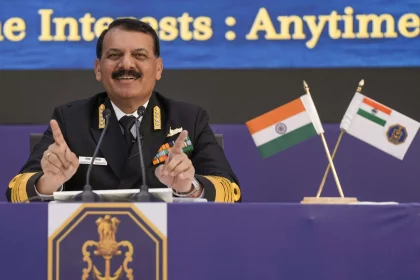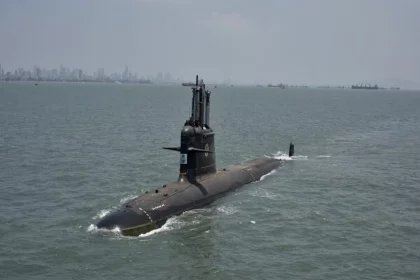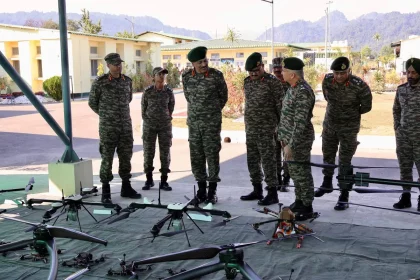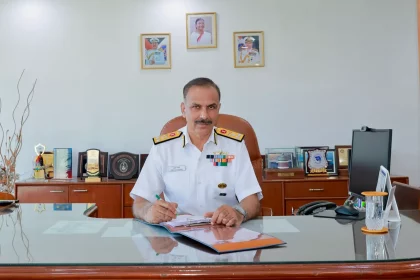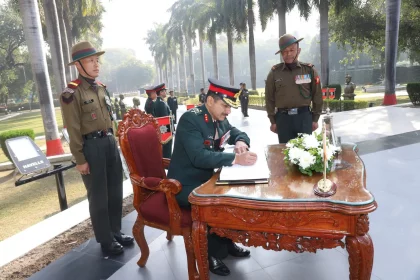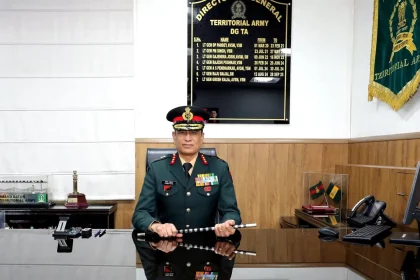Indian Navy Eyes First Rafale Jets by 2029; Project 75I Submarine Contract Nearing Finalisation, Says Admiral Tripathi
First four Rafale jets expected by 2029; Project 75I submarines contract in final stages.
Indian Navy to Commission INS Aridhaman, Third Indigenously Built Nuclear Submarine
INS Aridhaman to enhance India’s nuclear submarine strike capability and survivability.
Lt Gen Rajiv Kumar Sahni Visits Spear Corps, Applauds Troops and Indigenous Drone Innovation
DG EME praises Spear Corps troops and indigenous drone innovations.
Vice Admiral Ankur Sharma Assumes Charge as Director General Naval Projects (Mumbai)
Experienced Flag Officer takes charge to oversee key naval projects in Mumbai.
Major General Maneesh Kukrety Assumes Command of Madhya Uttar Pradesh Sub Area
New GOC calls for professionalism, discipline, and enhanced operational efficiency.
Lieutenant General Girish Kalia Takes Charge as Director General of Territorial Army
Seasoned Madras Regiment officer assumes charge, pays tribute at National War Memorial.

